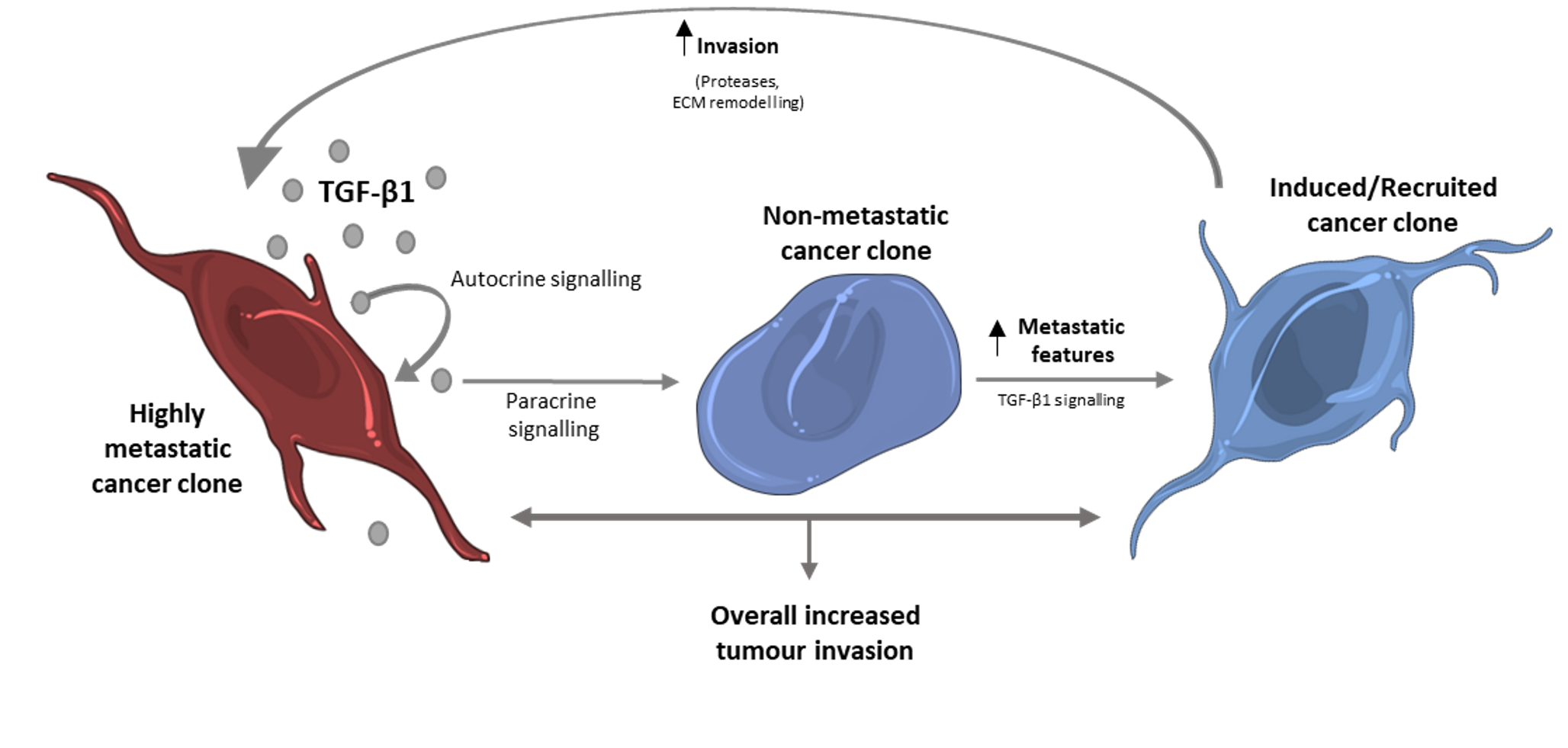Intratumour heterogeneity is often associated with poor response to treatment and bad prognosis. In addition to constitutive genetic/epigenetic sources, phenotypic and functional heterogeneity can reflect cell plasticity due to changes in gene expression patterns induced by signals from the tumour microenvironment or other cells. Positive interactions between cancer clones can increase their fitness and contribute to tumour growth, resistance to drugs and metastasis. Consequently, understanding the pathways involved in such behaviours is of great significance for cancer treatment. To explore if and how genetically distant clones can synergistically enhance each other's metastatic potential, this study used three (two breast and one lung) cancer cell lines with different aggressiveness levels. We found that (i) the conditioned media from the breast and lung aggressive lines induce mesenchymal features and increase the migration and invasion potential of the poorly metastatic breast line, and (ii) in both cases, this interclonal communication is based on the same soluble factor – namely, the tumour growth factor TGF-β1. Furthermore, when the two breast lines are mixed and co-cultured, the invasive potential of both lines is enhanced, and this outcome is dependent on the recruitment of the less aggressive clone into expressing a malignant phenotype. Based on our findings, we propose a two-tier model whereby highly metastatic clones can recruit weakly metastatic clones into acquiring an invasive phenotype, which in turn augments the invasion ability of the former (i.e., a “help me help you” strategy) through shared proteases and/or ECM remodelling. We suggest that such synergistic cooperation can easily emerge via cross-talk involving metastatic clones able to constitutively secrete signalling molecules that induce and maintain their own malignant state (i.e., autocrine/cell-autonomous signalling) and clones that have the ability to respond to those signals (i.e., paracrine/non-cell-autonomous signalling) and express a metastatic phenotype. Taking into account the lack of therapies to directly affect the metastatic process, interfering with such cooperative behaviours that tumour cells engage in during the early steps in the metastatic cascade could provide an additional strategy to increase patient survival.

